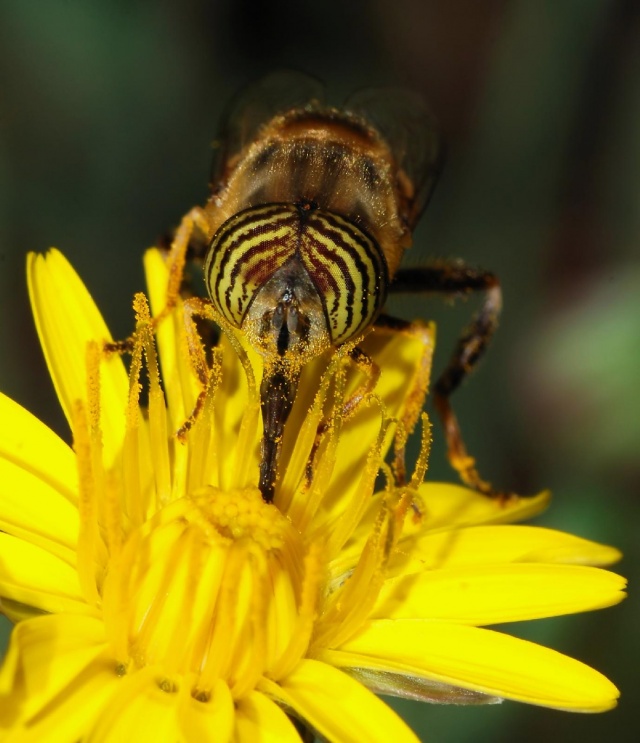To protect bees, farming should be more ecologically intensive
Humans depend on bees and other pollinators for 30-35% of their food production. However, the restructuring and exploitation of ecosystems for the promotion of intensive agriculture around the world is harmful for pollinators. What can be done to protect them? Experts provide an answer to this question in a study, one author of which is Anikó Kovács-Hostyánszki, a member of the MTA Centre for Ecological Research Lendület (Momentum) Ecosystem Services Research Group.
31 March, 2017
Intensive land use and conventional intensive agriculture, that is, large-scale monocultural farming with an extensive application of chemicals, certainly has advantages, but is also a source of grave problems: agrarian landscapes are homogenised and habitats are qualitatively degraded. This influences wild biocoenoses of plants and animals, especially those of pollinator insects.
Such changes made to ecosystems, and the exploitation of them, make food sources and nesting places indispensable for pollinator insects shrink or disappear. Consequently, pollinator assemblages decline, and insect-pollinated plants produce lower yields and fewer seeds.
Pollinators in danger
 A hoverfly (Eristalinus taeniops) pollinating common hawkweed (Hieracium lachenalii). Source: Wikimedia Commons/Alvesgaspar, CC BY-SA 3.0
A hoverfly (Eristalinus taeniops) pollinating common hawkweed (Hieracium lachenalii). Source: Wikimedia Commons/Alvesgaspar, CC BY-SA 3.0In February 2016, IPBES (Intergovernmental Platform for Biodiversity and Ecosystem Services) published the first comprehensive international report on the situation of pollinators and pollination. The document states that the populations of certain wild pollinator species and domestic bee populations are declining significantly in several parts of the world, although they play a crucial role from both ecological and economic points of view. On a global scale, 80 percent of all angiosperms and 75 percent of all cultivated plant species need pollinators for successful pollination. The need for pollinators has risen by one magnitude in the past decade among cultivated plants.
The study on pollination by IPBES has stated three complementary possibilities concerning agrarian ecosystems to protect pollinators:
- ecological intensification;
- strengthening of existing diversified agrarian systems;
- building of ecological infrastructures.
According to the authors of the study, ecological intensification plays a crucial role in restructuring agricultural fields and their cultivation. This method can support pollinators, pollination and food production.
Anikó Kovács-Hostyánszki, a member of the MTA Centre for Ecological Research Lendület (Momentum) Ecosystem Services Research Group, was one of the leading authors of the IPBES report. In their review article, she and her colleagues listed the effects and risks that changes in land use and cultivation can mean for pollinators and pollination. The study, written by six authors, is based on the IPBES report. Additionally, it discusses what possibilities ecological intensification offers in terms of mitigating the negative effects of conventional land use on pollinators. The aim is to make overall and local agricultural cultivation pollinator-friendly to enhance the effectiveness of pollination. The review article was published in the journal Ecology Letters.
What is ecological intensification?
This approach comprises measures and solutions concerning land management and land use such as intercropping, crop rotation, small-scale cultivation, mosaic cropping, rich and varied floral beds along borders and between cultivated lands, the modest use of chemicals, and the grazing and mowing of grasslands with regulated intensity and timing. To achieve this, proper institutions and infrastructure are needed. Researchers, agronomists, agricultural workers, decision makers and NGOs should cooperate, and their knowledge should be shared. The aim is to conserve the variability and richness of pollinator communities. This increases crop yields, the effectiveness of fruit and seed production, and on a larger scale, helps fulfil the aims of global sustainable development in the fields of food safety, land use and the conservation of biodiversity.
